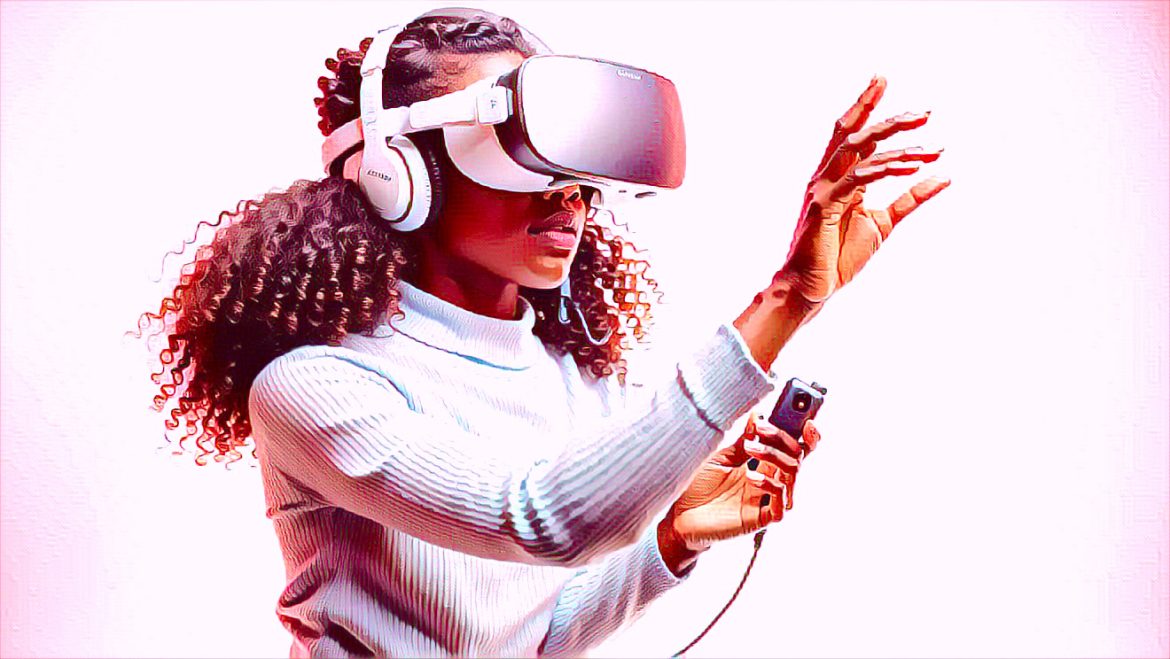KEY POINTS
- VR gaming centers are rapidly emerging in Nigeria’s urban landscapes.
- Government policies are actively promoting VR technology adoption.
- Innovative startups are expanding VR applications beyond traditional gaming.
The entertainment industry of Nigeria witnesses major developments with virtual reality (VR) gaming platforms that attract fans in growing numbers.
This immersive technology offers players unparalleled experiences, transporting them into dynamic digital realms.
But what’s fueling this surge in VR gaming across the nation?
Emergence of VR gaming centers in major cities
The urban centers of Nigeria experience rapid growth of VR gaming hubs, which allow enthusiasts to access modern gaming technology.
In Lagos, VR Place Nigeria stands out, offering a diverse array of immersive games suitable for various age groups.
They aim to supply exceptional virtual reality experiences which transform digital realms into physical ones.
Similarly, Abuja hosts Playbox Abuja, a premier VR gaming center located at 7 Hombori Street, Wuse 2. Open daily from 11:00 am to 9:00 pm, it provides residents and visitors with a venue to delve into the latest VR games and simulations.
Government initiatives propelling VR adoption
Recognizing the potential of VR technology, the Nigerian government introduced the National Policy on Virtual and Augmented Reality (VR/AR) in 2022.
Nigeria plans to become an African leader in virtual innovation through this strategic initiative which targets advancement of VR and AR technological development.
Also, the policy emphasizes enhancing digital infrastructure, ensuring broader internet accessibility, and supporting tech entrepreneurs through financial programs.
Pioneering startups driving the VR movement
The tech startups operating in Nigeria actively work on VR technology advancement.
Imisi 3D serves as a prominent VR development center located in Lagos to build immersive applications and train a VR content creation community.
The organization delivers training simulations across multiple sectors to eliminate educational inefficiencies between theory and practice.
Quadron Studios leads the innovation in the art world through their development of virtual art exhibition platforms that display Nigerian works.
The company offers digital exhibits where visitors can enter interactive spaces about artwork that exceeds the limitations of standard gallery participation.
Expanding VR experiences beyond gaming
The gaming aspect keeps Virtual Reality popular but the technology is finding new applications across the Nigerian landscape.
The implementation of virtual reality technology at educational institutions drives the development of virtual training and interactive learning systems for students.
The Virtual Reality Lounge in Uyo provides experienced-based VR sessions under supervision for individuals, families and corporate groups.
The sessions at their establishment provide participants with educational learning through simulations, while also delivering thrilling activities to create a fully immersive experience.
Challenges and the road ahead
The growth prospects for VR in Nigeria encounter obstacles as both high-tech equipment prices stand alongside weak internet infrastructure requirements.
However, the future of VR gaming and its associated applications in Nigeria shows positive potential when the government maintains support alongside increased entrepreneurial innovation and growing public interest.
In conclusion, virtual reality gaming in Nigeria signals an overall technological advancement which benefits broader parts of society.


